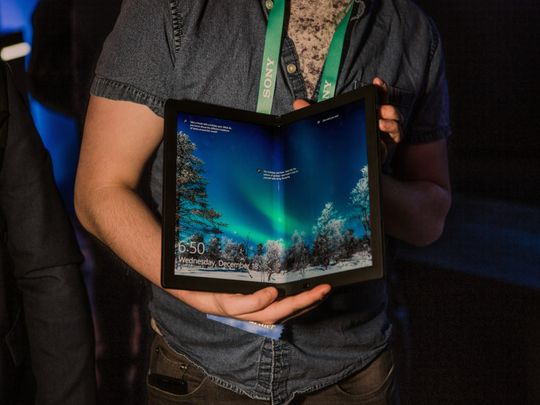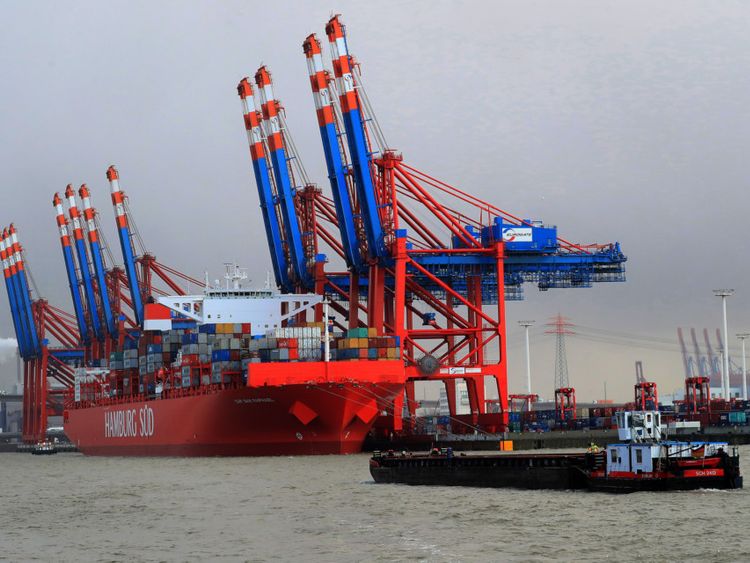
Shanghai: Like many other American staples and luxuries, L.O.L. Surprise! dolls are made in China. Chatsworth-based MGA Entertainment has them manufactured in Guangdong province, trucked to the port in Yantian Harbor, loaded on ships and brought to the US, where the popular toys are distributed to retailers and scooped up by eager children. The process went smoothly for years.
Then the coronavirus outbreak hit, and the supply chain stuttered.
The situation is “a disaster, frankly,” MGA Chief Executive Isaac Larian said. Production of his company’s toys has dropped 60 per cent compared with this period last year. To get by, he said, he is filling only partial toy orders — “if a retailer wants 100,000 pieces, we’re giving them 15,000 or 20,000.”
Businesses of all stripes around the world are feeling pain from the coronavirus outbreak.
Chinese visitors’ spending in Los Angeles could plunge nearly $1 billion (Dh3.67 billion) this year.
US shoppers might start seeing items missing from store shelves as early as mid-April, analyst Edward J. Kelly of Wells Fargo Securities said. Big-box retailers such as Walmart and Target “could be the first to experience out-of-stock issues” because they restock more quickly, he wrote.
Larian, however, fears the virus could “cause a major downturn on the whole consumer-goods business — electronics, shoes, apparel.”
Rival toymaker Mattel Inc. also cited that problem on Friday in announcing that its Chinese factories and those of its contract partners, which were supposed to restart production February 3, would stay shut until Monday.
It’s a problem felt across industries around the world, and here’s a quick snapshot:
FACEBOOK: Earlier this month Facebook Inc. stopped taking new orders for its back-ordered Oculus Quest virtual reality headset due to delays in hardware production from the viral outbreak.
AMAZON: Amazon.com urged Chinese third-party sellers on its Marketplace section to alert buyers of the likely disruption of orders and to consider setting their status to vacation mode to avoid incurring poor customer ratings, according to messages to sellers.
QUALCOMM: Qualcomm Inc., the San Diego-based chip manufacturing giant, warned shareholders on an earnings call that the virus had introduced “significant uncertainty” into the company’s overseas supply chain, with Chief Executive Steve Mollenkopf calling the outbreak an “unprecedented situation.”
SHIPPING: The effect on supply chains extends to the Port of Los Angeles — along with the dockworkers, truck drivers and the vast warehouse and distribution network that rely on it — all of which already had been disrupted in recent months by the US-China trade war, said Gene Seroka, the port’s executive director. He estimated that overall, there would be 80 fewer sailings of ships from China to the United States, and 350,000 fewer shipping containers received, in the coming weeks. The number of cargo containers received at the twin ports of Los Angeles and Long Beach would drop by one-fifth.
APPARELS: Nike Inc. has already closed scores of stores in China. The apparel firm Under Armour Inc. said the outbreak would cause its sales to drop by $50 million to $60 million. The footwear maker Skechers USA Inc. also reported “a significant number of temporary store closures” and said its comparable store sales in China were “below average.”
GAMING: David Schwartz, a gaming historian and history professor at University of Nevada, Las Vegas, said the effect of the coronavirus outbreak on Las Vegas is still unclear and that a better read will come in March when detailed data on gambling spending for January and February will be released. He said spending on Baccarat, a card game favoured by Chinese gamblers, will be telling. “The question is if it spreads, does it lead to a shift in travel behaviour,” he said. “If it is contained and goes away pretty quickly, it’s not going to be a big impact.”
ENTERTAINMENT: Walt Disney Co. has temporarily shut down its theme parks in Shanghai and Hong Kong, which is expected to cut $175 million from its second-quarter operating income. The coronavirus also has effectively shut down mainland China’s booming cinema industry, with almost all theatres in the country closed, and Chinese and US studios have felt the effects of the pause. During the Spring Festival holiday, box office sales totalled about $3.94 million, down nearly 100 per cent from $1.5 billion the same holiday period a year ago.
HOLLYWOOD: For studios outside China, including Hollywood companies that often rely on the country’s massive population to pad results for their movies, the market has virtually vanished temporarily due to the outbreak. Imported films have grossed a mere $37.8 million at Chinese theatres so far this year, down 86 per cent from the same period in 2019, according to Artisan Gateway data.
CARMAKERS: Tesla Inc. shut down its new Shanghai assembly plant from February 2 to February 10, but it’s unclear how much production has resumed. The Fremont automaker was aiming to build 150,000 electric cars at the facility this year. “It is unknown whether and how global supply chains, particularly for automotive parts, may be affected if such an epidemic persists for an extended period of time,” Tesla said in its newly issued 2019 annual report. Overall, the virus will disrupt production of at least 1 million vehicles across the industry, the China Association of Automobile Manufacturers said.













